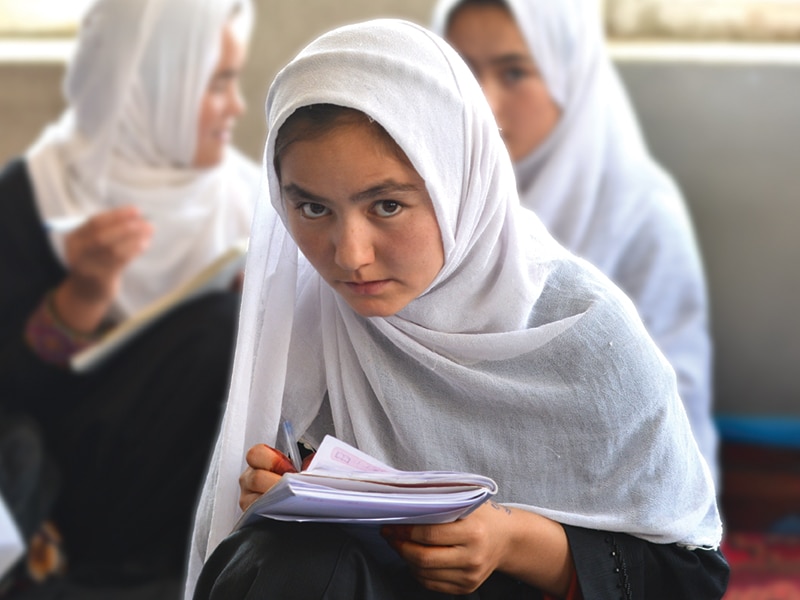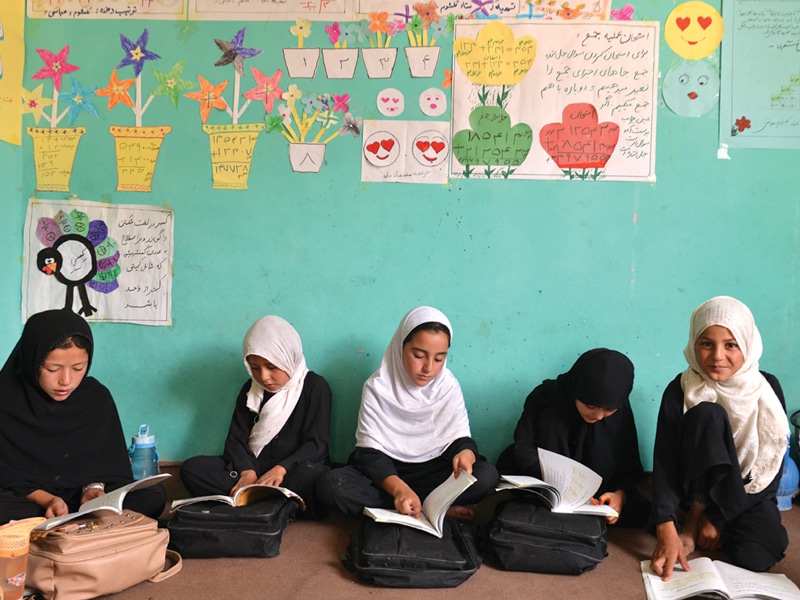By Natalie Meyer*

Founded in 2018 with the mission of “empowering Afghan youth through accessible education, skill development, and opportunities that promote lifelong learning,” Shining Star works across five Afghan provinces, reaching even the most remote pockets of the country. Led by a dedicated team of 350 local staff and teachers serving beneficiaries who are 80% female, Shining Star is creating significant educational opportunities. But their work is not without obstacles.
“Right now, Community Based Education (CBE) is under threat,” explained Pardes Wayand, Shining Star’s Program Manager. “We already can’t send girls [to school] past sixth grade, and now the Taliban is talking about shutting down these programs, too.” Still, their classrooms remain full. “The families want education,” he said. In one remote village comprised of fewer than 15 families, the village elder climbs up to his rooftop every morning to call the children to school, showing his dedication to their studies. Currently, Shining Star supports 2,884 students through CBE classes, as well as young learners aged four to six through their Early Childhood Development classes. “The Taliban doesn’t pay much attention to the early years,” noted Pardes. “That gives us room to start them on a path of learning.”

In partnership with CAI, Shining Star is also implementing a Women’s Economic Empowerment Program to equip women in rural areas with skills to run small businesses like dairy processing and mushroom cultivation. The organization supplements training with grants and other resources that participants need to start their businesses and earn income. These programs don’t just help them survive and support their families; they empower women to be leaders and add value to their local economies.
Collectively, these programs are transforming lives, but according to Pardes, their future is tenuous: “We are very thankful to the American people for their support over 20 years…but now, with USAID gone and many organizations leaving the country, support is declining, and our work is at risk.”
Najiba, a 24-year-old from Kunar Province, now serves as a CBE teacher through Shining Star, but her journey is one that reflects both loss and resilience.
Najiba was a top university student focused on business administration until her academic career was abruptly cut short by the Taliban restrictions. “From an early age, I have had a deep love for teaching,” she shares. When her village council announced that Shining Star would be establishing a CBE class, she immediately applied and was selected to lead a classroom in Gorgam. “That was one of the most memorable days of my life,” she said, grateful for the opportunity to serve her community and help students thrive.
The resilience of the Afghan people, especially girls, is what keeps these programs going. Despite many obstacles, Shining Star continues to work forward, and our partnership is a powerful example of how international organizations can support community-driven change on a local level, as we work together to set program goals, align priorities, and adapt projects in real-time. At the core of this collaboration is a shared belief in equity, dignity, and education as basic human rights.
At a time when the Taliban appears intent on erasing Afghan women and girls from society, the work of organizations like Shining Star is more critical than ever. CAI is proud to stand with them and grateful for the support of our donors who help keep the light of education shining bright through the darkness.
* Natalie interned for CAI during the summer of 2025 while an undergraduate student at Princeton University.
1 https://hummedia.manchester.ac.uk/institutes/gdi/publications/workingpapers/bwpi/bwpi-wp-17112.pdf

